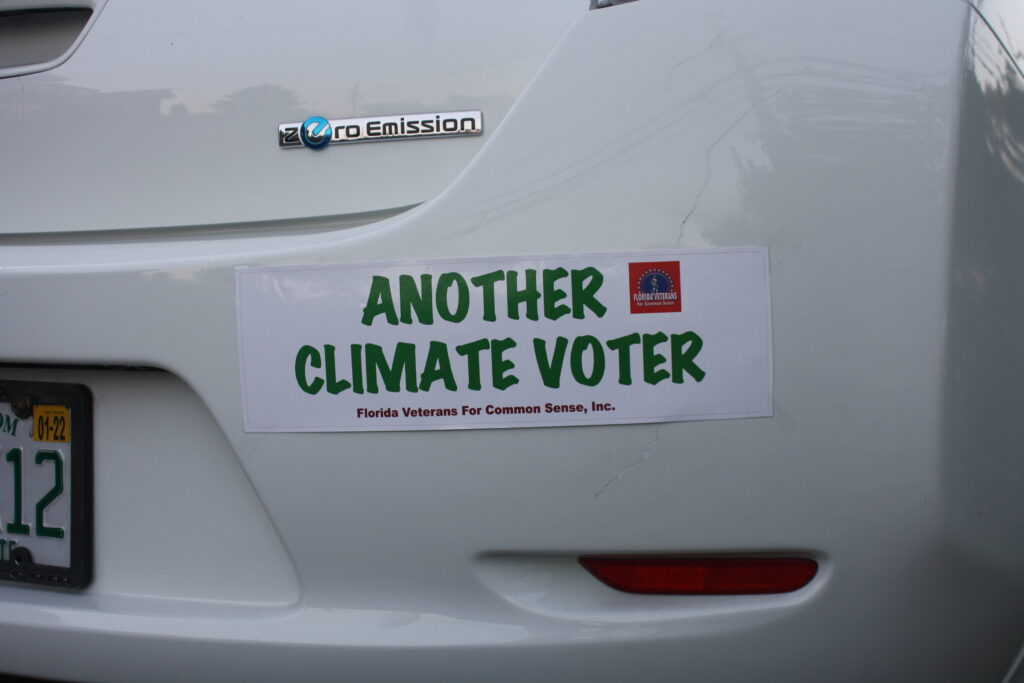Floridians should consider supporting candidates, from either party, who pledge to enact climate-saving policies
By William “Coty” Keller
In Florida, where there have been no recent efforts to mitigate climate change by reducing heat-trapping emissions, despite the exceptional risks we face, it seems very bizarre indeed. How can it be? The answer lies in an examination of the motivations of our elected leaders and response of our citizens.
U.S. corporations enjoy the same constitutional rights as individuals. Money, in the form of political donations, is treated as free speech. The result is the wealthy and corporations have been successful in influencing (buying) political policies that prevent keeping fossil fuels in the ground and stifle sound agricultural and soil management practices.
In Florida, our former governor did not allow the use of the term “climate change.” The present governor pitches for climate resilience (adapting to sea-level rise in particular) but will not discuss causes and therefore dismisses any action to mitigate. He hurt Floridians and the climate by refusing federal money for energy efficiency.
The state Legislature has not passed any bill to mitigate. Charlotte and other counties have agreed to join the Southwest Florida regional climate compact, but this agreement has not recognized the need to slow or reverse global warming. Instead, this compact aims only to adapt to the changing climate by becoming more resilient.
In Florida, we got what we voted for: Officeholders who value the demands of rich donors and corporations over the best interests of the people. Our officeholders have falsely claimed that transitioning to zero-emission energy would hurt the economy. The opposite is true.
Zero-emission energy is becoming the most cost-effective way to power our grids and move our vehicles. Continued use of fossil fuel leads to economic ruin. As former U.S. Treasury Secretary Robert Rubin wrote, “We do not face a choice between protecting our environment or protecting our economy. We face a choice between protecting our economy by protecting our environment — or allowing environmental havoc to create economic havoc.”
 A bumper sticker for the group Florida Veterans for Common Sense. (Submitted image)
A bumper sticker for the group Florida Veterans for Common Sense. (Submitted image)
Florida’s current leadership must be replaced so we can do the right thing and mitigate climate change. This is not a partisan pitch. One doesn’t have to be a Democrat to enact good climate policy.
Our state has had several climate champions from the Republican party in years past: Carlos Curbelo of Miami helped create the Climate Solutions Caucus in Congress. Francis Rooney of Southwest Florida advocated for a price on carbon, a free-market solution to reducing carbon emissions. These two Republican representatives served the public interest instead of special interests.
Floridians who want real action on warming and sea-level rise should consider supporting candidates, from either party, who pledge to enact climate-saving policies. This includes:
- Amending the U.S. Constitution to eliminate corporate personhood and money as free speech.
- Federal incentives for zero-emission energy and conservation measures — in homes and businesses and on farms.
- State regulations of electric utilities that promote conservation and establish a goal of 100% zero-emission energy by 2030, with a 25% carveout for rooftop solar.
- Local governments enacting zero-energy building codes, all-electric public transit, ecofriendly housing, and good commercial and business planning.
Florida’s citizens should consider becoming climate voters to enact these policies. Unless new civic-minded leaders are put in office, our lifestyles and economy will degrade, and life as we know it will not exist for our descendants.
Let’s act like an intelligent species and stop destroying our only home.
William “Coty” Keller is an ecologist working to conserve and restore the natural relationships among living things and the environment (https://ecopapak.org/). He lives and works in Port Charlotte, Florida, and Freeport, New York. A longer version of this op-ed was originally published in the October-December issue of Critical Times.
Do you like this page?

